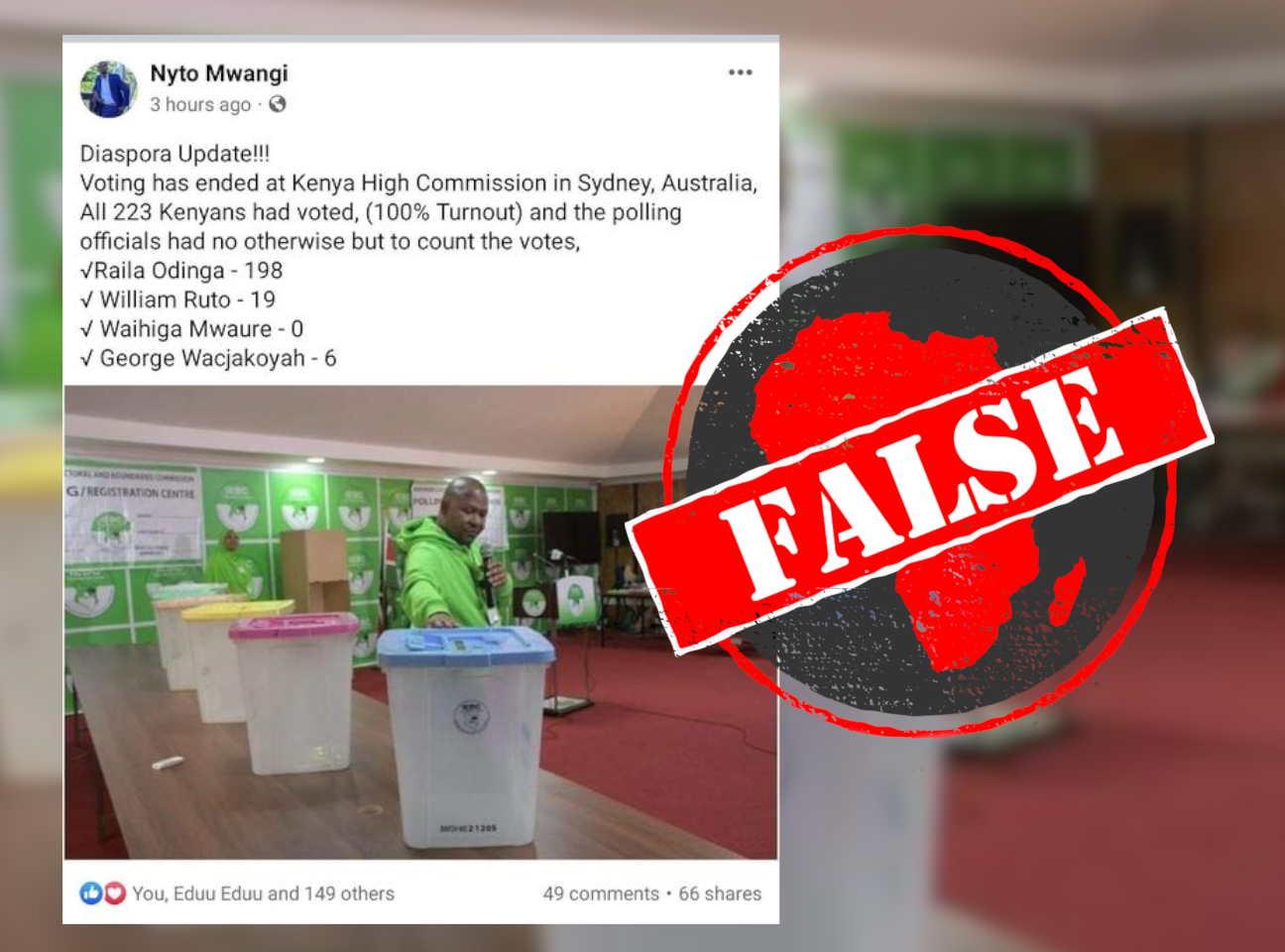“Diaspora Update!!!” reads a message circulating on Facebook since 9 August 2022. “Voting has ended at Kenya High Commission in Sydney, Australia. All 223 Kenyans had voted, (100% Turnout) and the polling officials had no otherwise but to count the votes.”
It then gives the supposed results of the Australian votes for president in Kenya’s 9 August general elections. Some versions show an overwhelming majority for deputy president William Ruto, while others give former prime minister Raila Odinga the lead.
Odinga and Ruto are the frontrunners in the presidential race.
While all versions of the message say the voting took place in Australia, some claim it was in Canberra, the capital, and others claim it was in Sydney, the country’s largest city.
The message has been posted on a public Facebook group page with more than 270,000 members, as well as on a page with over 86,700 members, and another with over 13,000 members.
It can also be seen here, here, here, here, here and here.
Kenyans living in the diaspora vote for president at embassies and consulates. Kenya has a high commission in Canberra, but did Kenyans in Australia vote on 9 August? We checked.

Australia not on list of 12 countries
The Kenyan electoral commission has published a list of all polling stations, in 12 countries, for citizens living abroad.
The 12 countries are Tanzania, Uganda, Rwanda, Burundi, South Africa, South Sudan, Germany, the United Kingdom, Qatar, the United Arab Emirates, Canada and the United States.
Australia is not on the list.
Republish our content for free
For publishers: what to do if your post is rated false
A fact-checker has rated your Facebook or Instagram post as “false”, “altered”, “partly false” or “missing context”. This could have serious consequences. What do you do?
Click on our guide for the steps you should follow.
Publishers guideAfrica Check teams up with Facebook
Africa Check is a partner in Meta's third-party fact-checking programme to help stop the spread of false information on social media.
The content we rate as “false” will be downgraded on Facebook and Instagram. This means fewer people will see it.
You can also help identify false information on Facebook. This guide explains how.





Add new comment